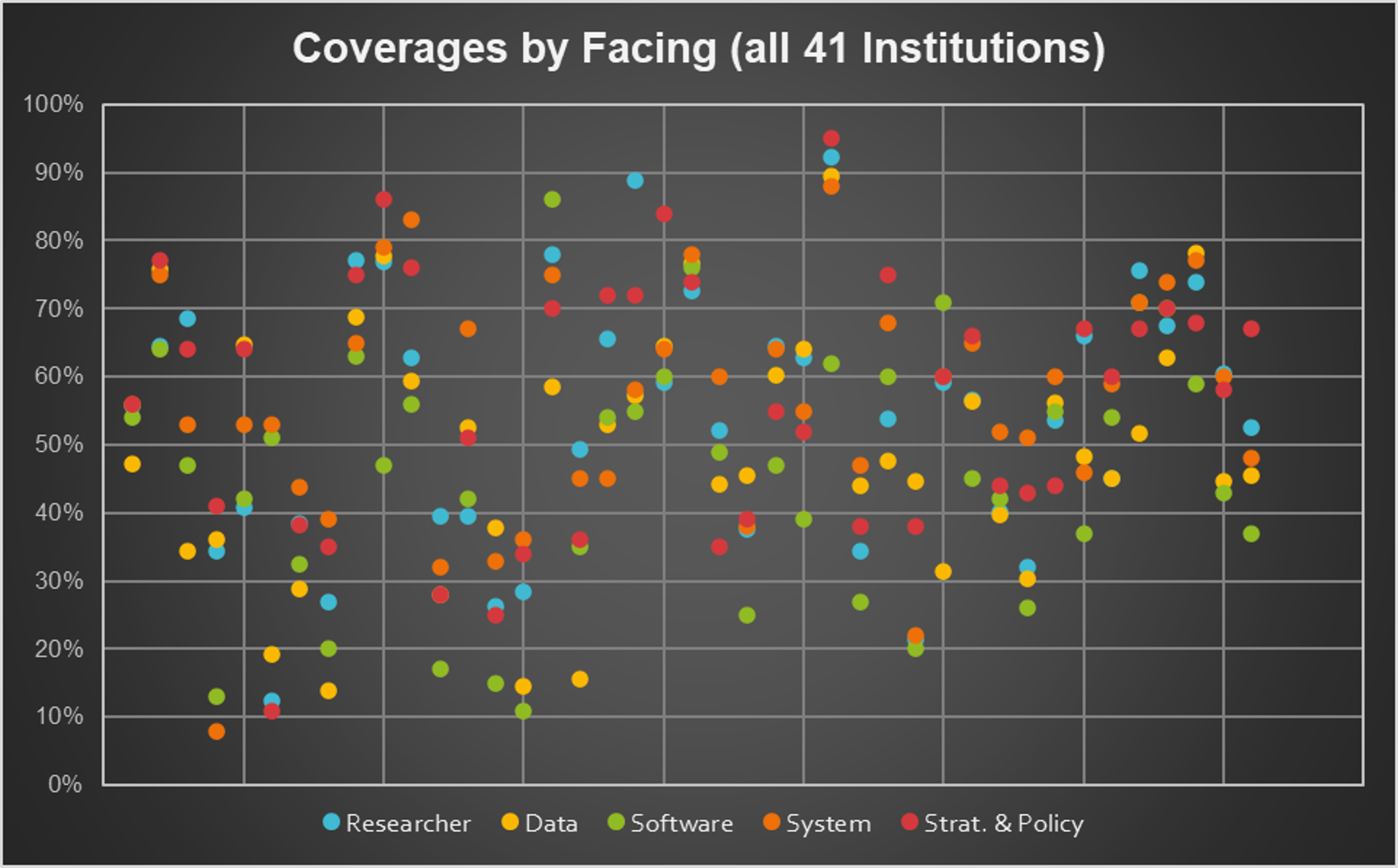Mark your calendars for these upcoming People Network virtual meetings. (For handy calendar entries, try the CaRCC Events Calendar.)
Plenary session hosted by the Data-Facing Track (first Tuesdays)
Tuesday, March 2, 1p ET/ 12p CT/ 11a MT/ 10a PT
PLENARY: Using Data to Benchmark your Research Computing and Data Program: The RCD Capabilities Model and Community Dataset
Presenters: Claire Mizumoto, UC San Diego & Patrick Schmitz, Semper Cognito Consulting
Join us during the regular data-facing slot for the first (and hopefully not last) People Network plenary session! Claire Mizumoto and Patrick Schmitz from the Capabilities Model working group will present the results from the first community dataset. These assessments were completed using the 1.0 version of the Research Computing and Data Capabilities Model (RCD CM), over a period of several months in the Spring and Summer of 2020. This Community Dataset provides insight into the current state of support for RCD across the community and in a number of key sub-communities.
Across science, engineering, social sciences, and the humanities, every university depends upon research computing and data (RCD) professionals and infrastructure. The rapid evolution and diversification of RCD infrastructure, services, and support poses significant challenges to academic institutions as they try to effectively assess and plan for the growing needs of researchers. Many institutions would also like to assess their capabilities in comparison to peers. The lack of a shared vocabulary to describe the various aspects of RCD support hinders coordinated efforts to advance support of and for researchers. These challenges are especially acute for smaller and emerging RCD support organizations, which often lack experience supporting RCD and have limited resources to develop an analysis framework for strategic planning. To address these gaps, a collaborative team developed a Research Computing and Data Capabilities Model that allows an organization to self-evaluate across a range of RCD services. The Model provides structured input to guide strategic planning, leveraging a defined and shared community vocabulary and enabling benchmarking relative to peer institutions.
Researcher-Facing Track (second Thursdays)
Thursday, March 11, 1pm ET (12pm CT/11am MT/10am PT)
All About Orienting Researchers to Research Computing + Data Resources
Continue reading “Join us for March People Network Calls”

